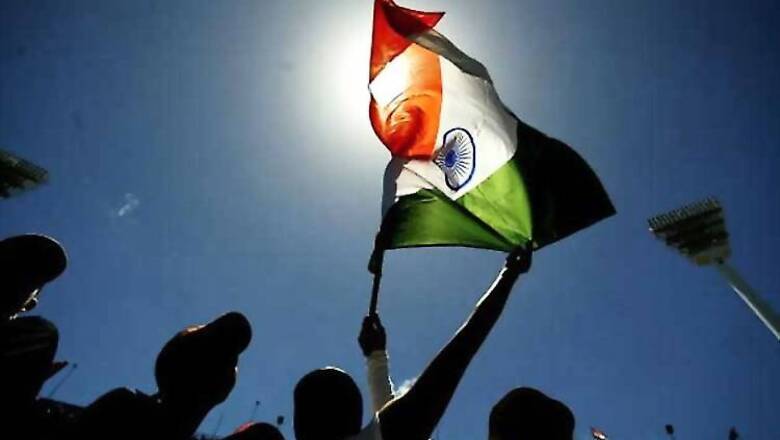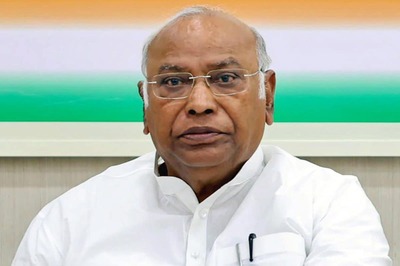
views
The Indian Diaspora globally constitutes around 22 million, of which 10 million are NRI (Non Resident Indians) and the remainder 11.8 million are classified as PIO (Persons of Indian Origin).
Most of this Diaspora comprises a mix of students, people working in different professions, temporary workers, permanent workers in county, state and federal governments etc, in a spate of resident statuses namely, student, work permit, green card, to list a few. With the rate of settlement in foreign countries increasing at an unrivalled trend, the rise of issues and domestic concerns faced by the non residents warrants for a need for their voices to be heard and for rightful representation in Indian government. This is required so that these issues could be effectively addressed and brought to the notice of relevant foreign authorities for action.
Contribution to Indian Economy:
Indian economy is passing through a recovery phase, with a growth rate of 7.4% in the first three quarters of 2015. NRIs can provide a much needed healthy fiscal push to her recuperating economy which could trigger a catalytic reaction to the growth of the nation in a deluge. The Reserve Bank of India has directed the Indian banks to attract NRI deposits and there are numerous short and long term investment plan options available for them. Besides, NRIs are encouraged to establish businesses and educational institutions in India. As a result of all this, there is greater involvement of NRIs in India. Though a cursory look at NRIs' contribution portrays a not so pellucid outlook, a deeper analysis reveals that NRIs are major source of Direct Foreign Investment, market development (outsourcing), technology transfer, charity, tourism, political contributions and more substantial flows of knowledge in India.
People of Indian Origin contribute to India's economy in sundry ways in multitude capacities - right from spending time and money for social cause, preserving and promoting Indian tradition and culture, research and development, foreign direct investments, startups to all the way remitting billions of dollars at regular intervals. Despite not being physically present and not working in India, it is entrancing to witness the passion and interest of Non Resident Indians towards being a part of the effort to contribute to the rise of India as one of the powerful global economies. Today, much of this Indian diaspora are a well accomplished lot of proud Indians who have gone places and brought glory in the fields of science, arts, philosophy, technology, medicine, literature, manufacturing, business, charity, music, film, insurance (to name a few), to the extent of featuring in Forbes magazine. This list can go on until the cows come home. Despite their disparate trades and professions, one thing that binds all the diaspora together is the intense ardour to see their motherland grow economically and otherwise.
The remittances by non resident Indians are beyond pragmatic belief. According to Word Bank, India has topped the remittance chart for 2014, pulling in around $71 billion from its global migrant workforce. China follows with $64 billion. Despite challenging economic situations in 2013, India held itself steady, with remittance increasing only marginally. Still, the $70 billion windfall constituted a healthy 3.7 per cent of the country's nearly $2 trillion GDP. The money often serves the economy as a helpful padding to other financial shocks. The above veridical data proves growing contribution of non resident Indians towards India's growth as a nation. If their professional knowledge coupled with financial inflow (which currently stands at an estimated $250 billion) could be used in the best interests of the nation, I have no qualms in stating that India could soon earn itself a place in the list of most revered developed nations.
Petition for Representation:
For years, Indians have migrated to various parts of the world, looking for greener pastures. The United States alone comprises around 2 million Indian immigrants. This population has grown to over 150 times its size since 1960. A similar positive trend follows in United Kingdom, Canada, UAE and other countries too. Based on the huge non-resident population, which literally grew exponentially, and in light of several issues faced by NRIs (students, visitors, workers, permanent residents, etc), it became more important than ever to highlight the issues with the central government of India. The needs of the diaspora are much more prevalent, granular and geographically diverse. For instance, the concerns of diaspora could be drastically different in Middle East and Africa in comparison with issues in North America, Europe and Asia Pacific. To further the metamorphic ability of Non Resident Indians to vote in Elections, we propose to nominate six officials in Rajya Sabha to represent and highlight issues of Non Resident Indians, three from North America and the other three from rest of the world. These nominated members to Rajya Sabha would ensure all the plights, issues and concerns of Non Resident Indians, from respective foreign states, are highlighted and hopefully resolved. This representation could be accommodated as part of the selective nomination to Rajya Sabha, by the honourable President of India, which needs amendment to Constitution (The Constitution of India has been amended 99 times in the past). This could very well be a watershed moment in the legislative history of a burgeoning economy like India. This plausible effort with the help of all non resident Indians could be a generational milestone, the fruits of which would be relished by generations to come.
Opinions expressed are personal. CNN-IBN and IBNLive do not subscribe to the views of the author.




















Comments
0 comment